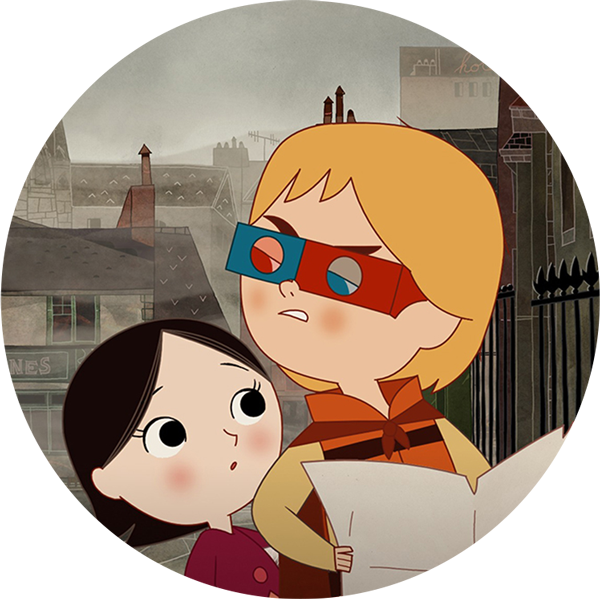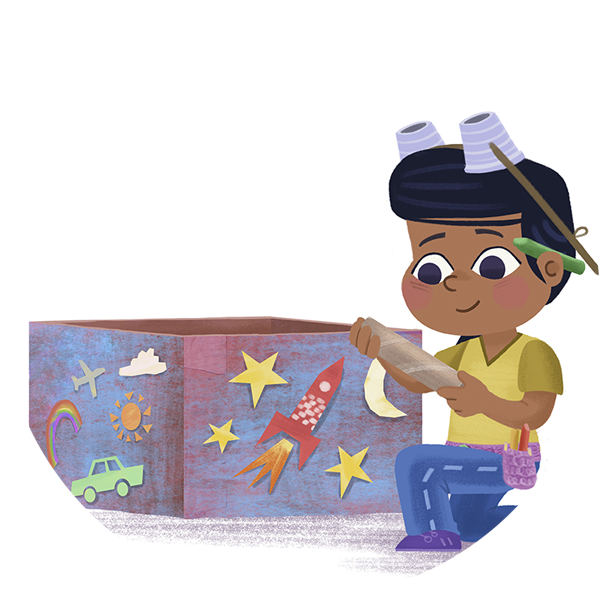
The Irish animation industry has established itself as one of Europe’s most active and internationally renowned thanks to enterprising local producers, a generous tax credit and collaboration with subscription video-on-demand companies.
International links
While Ireland has a long history as a hub for animation, the country’s productivity in animation has increased dramatically since its tax credit went up from 28% to 32% of eligible Irish expenditure for film and TV animation in 2015. This coincided with the launch of the Irish Animation Awards, which were set up to recognise the achievements of the local animation industry and community.
Animation Ireland currently represents over 25 companies of varying sizes, specialising in 2D, 3D and stop-motion animation, mostly for TV series, but including features and short films, whilst experimenting with new formats such as virtual reality.
Irish animation companies have provided a mixture of service work for broadcasters such as Disney (Doc McStuffins) and the BBC (Octonauts). They have also created and sold their own award-winning IP to the likes of Nickelodeon (Kiva Can Do) and Netflix (Puffin Rock). Meanwhile, feature films produced and coproduced by Irish animation companies, such as The Secret of Kells (2009), Song of the Sea (2014) and The Breadwinner (2017), have received Oscar nominations.
Numerous North American companies have decided owning an Irish animation studio could be beneficial to their businesses due to factors such as the favourable tax credit and a skilled workforce. These have included U.S. toy company Hasbro, which bought Boulder Media in 2016, and Canada’s 9 Story Media Group, which acquired Brown Bag Films in 2015.
International investment such as this, along with programming exports and studios employing approximately 1,500 to 2,000 people, has meant animation is an increasingly important part of the Irish economy, contributing between €75m and €100m a year.
The Irish animation industry is also a close-knit creative community, with many heads of local studios graduating from college together before founding their own companies. There is a recognition that one company’s success is beneficial to the entire industry, while demand for animators from a relatively small pool also means competition for talent is fierce. There are growing efforts to ensure the Irish animation industry has a pipeline of sufficiently skilled potential employees to tap into in order to keep up with demand. Animation Skillnet provides subsidised training solutions to Ireland’s animation, games and VFX sectors through training courses designed and delivered by industry specialists.
Room for improvement
While the Irish government’s support for animation is highly valued, there is a feeling among the local production community that the tax credit could be more efficient and less complex. Meanwhile, the amount of international investment in local animation is in stark contrast to the figure spent by the Irish public broadcaster RTÉ, which stands at less than €1m per year.
Although the broadcaster is highly supportive of local animation companies in their early stages of development and will often come on board projects in order to help boost their profile, the local industry feels it should invest more in the sector. Animation Ireland has called for RTÉ to increase its spending to a minimum of €6m per year.
Other avenues for funding available to Irish animation companies include the Broadcasting Authority of Ireland, Irish-language broadcaster TG4 and Screen Ireland (formerly known as the Irish Film Board), which works with Animation Ireland to provide development and production funds for both film and TV series.
Commercial opportunities
The Irish animation industry has arguably capitalised on the growth of a new generation of buyers of animated content more effectively than any other in Europe. The latest example of this has been Kilkenny-based Cartoon Saloon selling rights to its animated feature Wolfwalkers (2019) to Apple. This follows the local industry fostering close, and highly lucrative, links with platforms such as Netflix and Amazon.
In light of this interest from a diverse array of buyers for its members’ content and resulting expected growth, Animation Ireland is aiming to help local producers better understand how to exploit their IP more commercially. If successful, this would mark the next stage in the evolution of Ireland’s animation sector, which has justifiably earnt a reputation for popular and critically-acclaimed original content alongside providing high-quality service work.

The Irish animation industry has established itself as one of Europe’s most active and internationally renowned thanks to enterprising local producers, a generous tax credit and collaboration with subscription video-on-demand companies.
International links
While Ireland has a long history as a hub for animation, the country’s productivity in animation has increased dramatically since its tax credit went up from 28% to 32% of eligible Irish expenditure for film and TV animation in 2015. This coincided with the launch of the Irish Animation Awards, which were set up to recognise the achievements of the local animation industry and community.
Animation Ireland currently represents over 25 companies of varying sizes, specialising in 2D, 3D and stop-motion animation, mostly for TV series, but including features and short films, whilst experimenting with new formats such as virtual reality.
Irish animation companies have provided a mixture of service work for broadcasters such as Disney (Doc McStuffins) and the BBC (Octonauts). They have also created and sold their own award-winning IP to the likes of Nickelodeon (Kiva Can Do) and Netflix (Puffin Rock). Meanwhile, feature films produced and coproduced by Irish animation companies, such as The Secret of Kells (2009), Song of the Sea (2014) and The Breadwinner (2017), have received Oscar nominations.
Numerous North American companies have decided owning an Irish animation studio could be beneficial to their businesses due to factors such as the favourable tax credit and a skilled workforce. These have included U.S. toy company Hasbro, which bought Boulder Media in 2016, and Canada’s 9 Story Media Group, which acquired Brown Bag Films in 2015.
International investment such as this, along with programming exports and studios employing approximately 1,500 to 2,000 people, has meant animation is an increasingly important part of the Irish economy, contributing between €75m and €100m a year.
The Irish animation industry is also a close-knit creative community, with many heads of local studios graduating from college together before founding their own companies. There is a recognition that one company’s success is beneficial to the entire industry, while demand for animators from a relatively small pool also means competition for talent is fierce. There are growing efforts to ensure the Irish animation industry has a pipeline of sufficiently skilled potential employees to tap into in order to keep up with demand. Animation Skillnet provides subsidised training solutions to Ireland’s animation, games and VFX sectors through training courses designed and delivered by industry specialists.
Room for improvement
While the Irish government’s support for animation is highly valued, there is a feeling among the local production community that the tax credit could be more efficient and less complex. Meanwhile, the amount of international investment in local animation is in stark contrast to the figure spent by the Irish public broadcaster RTÉ, which stands at less than €1m per year.
Although the broadcaster is highly supportive of local animation companies in their early stages of development and will often come on board projects in order to help boost their profile, the local industry feels it should invest more in the sector. Animation Ireland has called for RTÉ to increase its spending to a minimum of €6m per year.
Other avenues for funding available to Irish animation companies include the Broadcasting Authority of Ireland, Irish-language broadcaster TG4 and Screen Ireland (formerly known as the Irish Film Board), which works with Animation Ireland to provide development and production funds for both film and TV series.
Commercial opportunities
The Irish animation industry has arguably capitalised on the growth of a new generation of buyers of animated content more effectively than any other in Europe. The latest example of this has been Kilkenny-based Cartoon Saloon selling rights to its animated feature Wolfwalkers (2019) to Apple. This follows the local industry fostering close, and highly lucrative, links with platforms such as Netflix and Amazon.
In light of this interest from a diverse array of buyers for its members’ content and resulting expected growth, Animation Ireland is aiming to help local producers better understand how to exploit their IP more commercially. If successful, this would mark the next stage in the evolution of Ireland’s animation sector, which has justifiably earnt a reputation for popular and critically-acclaimed original content alongside providing high-quality service work.

Animation Ireland
Animation Ireland is the trade association for the leading Irish animation studios working together to promote Ireland’s world class sector internationally. With millions of children watching animated programmes produced here, Ireland is a recognised leader for TV, Film, Games and Visual Effects. The Irish animation industry has experienced substantial growth since 2010 and has emerged as a central component of Ireland’s digital and creative economy. Award winning Irish studios employ more than 1,000 full time staff.


 Animation in Republic of Ireland
Animation in Republic of Ireland